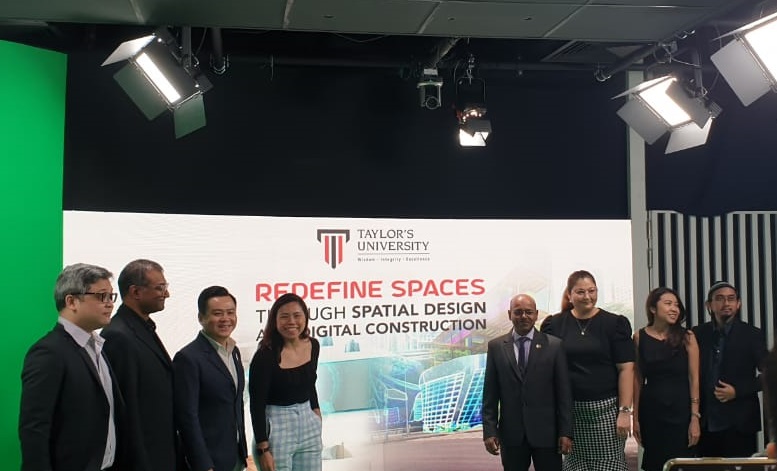
PETALING JAYA, Jan 16 – The demand for digital talents has continued to grow exponentially and this is not limited to the Information Technology (IT) field but across all sectors from healthcare, banking, green building, transportation and to other non-IT based industries.
It is in line with this growth trend and the need to prepare job-ready graduates in the area of new and emerging technologies that the Taylor’s University will be introducing two, first-of-its-kind programmes, the Bachelor of Interactive Spatial Design (Honours) and Bachelor of Science (Honours) in Sustainable Digital Construction Management in March this year.
Speaking at a press conference following the launch of the programmes here last Friday, the university’s Faculty of Innovation & Technology Executive Dean, Professor Dr. David Asirvatham, said almost all fields now require the use of Information Communication Technology (ICT) and technology, and this is being reflected in the job market trend.
“Traditionally, most of the technology professionals were hired by the tech companies but data today shows that more than 50 percent of the jobs posted for technology professionals are coming from the non-tech companies.”
Along with this, more and more new jobs are being created, he said, adding that the university believed that the two new programmes will prepare its graduates to meet the demand for new tech talents.
In his speech earlier at the launch, Dr Asirvatham said the Digital Economy is expected to increase demand for non-traditional jobs and hence the university’s School of Architecture, Building and Design (SABD) as well as The Design School (TDS), had identified the programmes to address the future tech talent demands in the construction and environment industries.
“These programmes focus on IR4.0 and Smart Society 5.0. Thus, technologies such as 3D printing, XR technology, Advanced Materials, Artificial Intelligence, Digital Twins and Automation are integrated into the curriculum.”
Citing the Ministry of International Trade and Industry’s 2050 Foresight Initiative Report, he said emerging technologies such as the Internet of Things, 3D printing, biological gene sequencing, and artificial intelligence were all areas that bound to shape the future of younger generations and the competitiveness of Malaysia in the coming decades.
On the two new programmes, he said they will be supported by cutting-edge technologies on campus, such as Virtual Online Future Technology and Extended Reality (VORTEX XR LAB), VX Lecture Theater, 3D Printers and BIM Software among others.
He also added that the university’s RM1.2 million ringgit-VORTEX XR Lab will not only be used for teaching and learning but also for the purpose of XR content creation, ideation, designing, and prototyping immersive experiences. “The university also hopes to embed XR technologies into all degree programmes to provide every student with the opportunity to experience immersive technologies during their journey at the university.”
On the Bachelor of Interactive Spatial Design, Programme Director Din Tan Chin Seng said the programme will focus on producing digitally design savvy designers, technologist and techpreneurs to stimulate immersive spatial experiences of urban spaces, performances, museums, galleries, and many more.
“The discipline combines digital technology and traditional spatial design principles to improve the ways we interact with our surroundings as we have been using the environment as a medium to promote play, engagement, and communication.”
As for the Bachelor of Science in Sustainable Digital Construction Management, Programme Director, Dr Sujatavani Gunasagaran said the curriculum will specifically tackle the Building Information Modelling for construction management and planning to provide students the needed digital skills to support the digitalised construction industry.
Along with helping students embrace the Fourth Industrial Revolution, the programme will also incorporate digital technology like laser scanning, drones, artificial intelligence, AR, and 3D printing, she added.
–WE